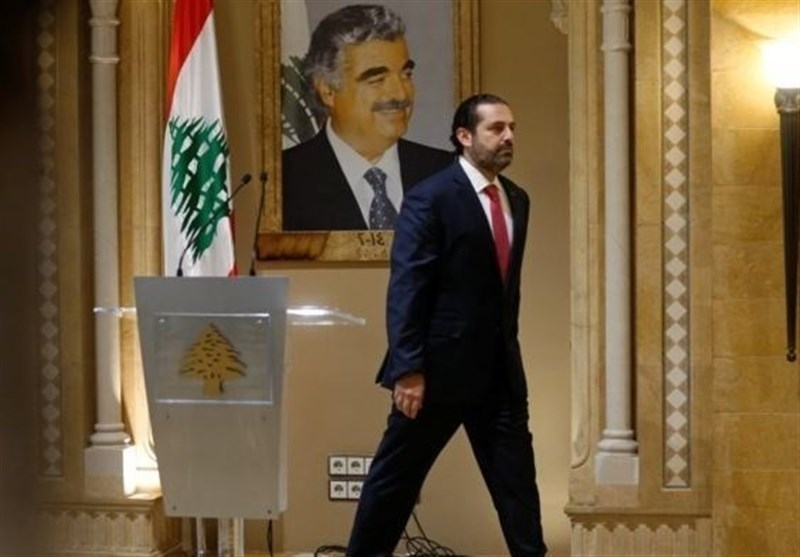AhlulBayt News Agency (ABNA): Seyed Hadi Seyed Afghahi, stated that what is happening in Lebanon is a conspiracy that has been formed with the role and intervention of some regional and trans-regional countries, noting: Unfortunately, the system of political governance in Lebanon, which is based on partisanship and sectarianism, is an ailing and worn out system, and as long as this system is not based on democratic laws, considering the possibility of direct intervention by the people and not through sectarianism, a serious and infrastructural change in governance issues of that country will not be created.
He added that many political currents that represent their tribal share within the system of government are also directly or indirectly dependent on powers outside Lebanon, including Israel, Saudi Arabia, France and the United States.
The expert of West Asia affairs described remarks and positions of the French president and foreign minister on developments in Lebanon as “interventionist” and said: Le Drian with complete impudence gather Lebanese politicians and make harsh remarks about speeding up formation of the government, while despite such obvious interventions, the media of the reactionary Arab countries regularly accuse Iran of interfering in Lebanon!
Seyed Afghani, referring to Saad Hariri’s intimate ties with Saudi Arabia, continued: He also has Saudi citizenship, and high-ranking Saudi officials easily state that if Hariri includes a member of Hezbollah in his future cabinet, he will be deprived of his Saudi identity card. Under such circumstances, how can we expect the situation in Lebanon be different from what we are witnessing today?
Consequences of political vacuum in Lebanon
Referring to the Lebanese Defense Minister’s warning about the danger of a “massive collapse” in the country, he addressed the economic sanctions imposed on Lebanon and its economic consequences, and criticized the performance of the country’s central bank, saying: Unfortunately, the government has failed to be formed for eight months in Lebanon and despite all the economic, livelihood and social crises, they have kept the people in a vacuum which will lead to an explosion any moment.
Seyed Afghani called the disarmament of Hezbollah and the incitement of the people supporting the Lebanese Islamic Resistance against the party leader is one of the goals of the interventionists in Lebanon and stressed: The United States, the West, the Zionist regime and the Arab reaction do not want Lebanon to find peace and the design of the governance system in that country also provides the ground; because the blows inflicted by the Lebanese Islamic Resistance on the body of the Zionist regime’s army are like a dagger on its side.
Need for fundamental reforms in Lebanese political structure
Seyed Afghani stressed: The political structure in Lebanon needs fundamental reforms, otherwise the country, which has seen repeated political blockades and bloody civil wars, will experience more complicated and worse conditions.
External pressures, interventions prevent formation of cabinet
He referred to the remarks of Hassan Diab, the first Minister of Foreign Affairs in Lebanon, that it has become very difficult to reach a solution to the problems, and continued: Mr. Hariri has a better chance of forming a cabinet than others, but the problem is that because the pressures that are imposed on him, he has no authority. However, he is affected by external pressures, especially from Saudi Arabia, and part of the assets of the Hariri family is in Saudi Arabia, and some of the officials of that country have a partnership with Mr. Hariri.
Seyed Afghahi added: Although Hezbollah has announced that it will help Mr. Hariri to form a cabinet, on the other hand, they have warned Hariri on disarming Hezbollah and stressed that he should not support the axis of Resistance in order to stop fighting with Israel.
He said: It is not clear how this situation will be resolved in Lebanon; because even if any other government is formed, the current of March 14 will put these pressures on him.
Seyed Afghahi called dismissal of Lebanese Foreign Minister following some criticisms of Saudi Arabia as a sign of the impact of foreign intervention and pressure on Lebanon, and continued: When Hezbollah offered to buy cheap fuel from Iran to help address fuel shortages, the US Ambassador to Lebanon threatened that he would not allow Iranian ships to approach the shores of Lebanon! They are interfering in the fabric of Lebanese sovereignty, but they are blaming Iran and Hezbollah for such problems.
Some are seeking a civil war in Lebanon
The expert on West Asia affairs cited tensions between the president and his son-in-law, Gibran Bassil and Saad Hariri, over the number of ministers and their demands for key ministries as other problems facing the cabinet, adding: There is an opportunity for Mr. Hariri to take effective steps to form a government, given the increasing pressure.
Referring to the warning of the Speaker of the Lebanese Parliament, Nabih Berri, that the continuing deterioration of the situation in that country will cause widespread destruction, he clarified: Some economists have explicitly said that there is no such thing left as the Lebanese economy! It seems that some parties are either looking to engage Lebanon in a civil war or to leave the country in a vacuum so that the people can stop supporting the Resistance.
/129

